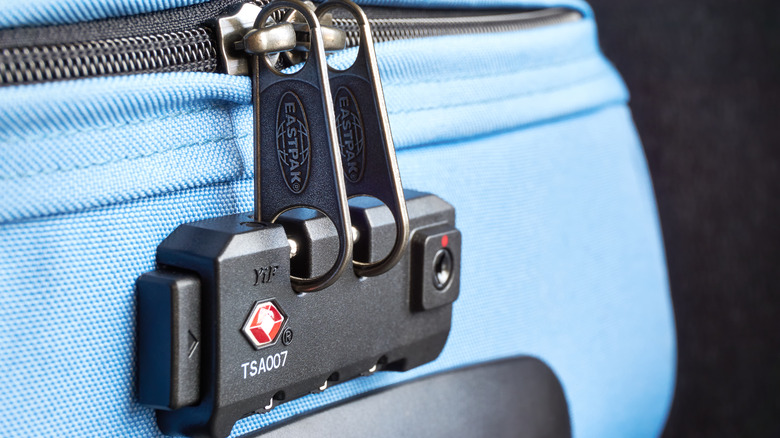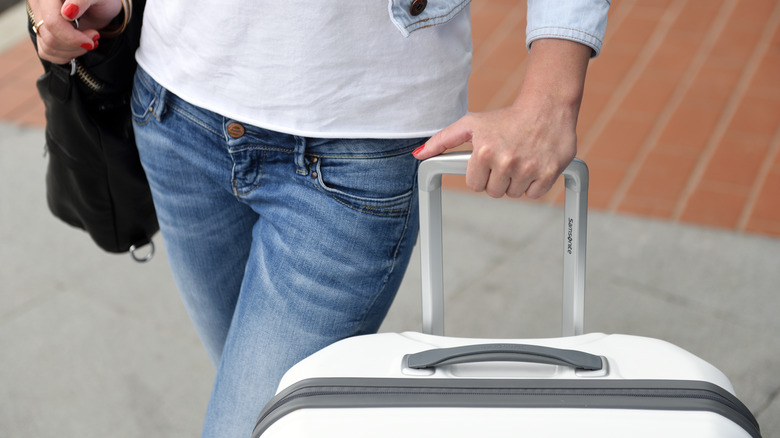Do Luggage Locks Actually Improve Bag Security? TSA Has Finally Weighed In
Picture this: you're standing at the baggage carousel watching hundreds of identical black suitcases slowly pass you by — most of them adorned with small locks clipped to their zippers. Heck, you might even have one on your own bag. But have you ever wondered if that tiny piece of metal is actually doing anything to protect your belongings?
Sure, that trusty luggage lock might give you peace of mind ... but what difference does it really make in terms of safety and security? While most travelers swear by these small devices — thinking they're the ultimate defense against airport theft — the reality is a little more complicated than that.
Because, as it turns out, the choice of whether or not to clip a TSA-approved lock onto your suitcase for safety reasons isn't as straightforward as choosing the best airline seat for your journey. This is especially true if you're traveling internationally or checking multiple suitcases, where more "protection" — aka, having a locked bag — doesn't necessarily mean more security.
Locked bags can help, but they aren't a foolproof solution
According to the TSA, only about 5% of checked bags require physical inspection. Nonetheless, that small percentage still amounts to thousands of bags each day. And while TSA-approved locks are meant to make these inspections a lot smoother, even those pre-approved locks sometimes get cut off. This is especially common if TSA agents can't find their master key, or if they're pressed for time — like during busy holiday periods. This basically means that all of your hard work of finding a TSA-compliant lock, setting the code, and clipping it onto your bag ends up being nothing more than an annoying waste of money and time.
However, the bigger issue with luggage security isn't necessarily with the TSA's inspection process at all. In 2014, various publications shared photos of the TSA's universal master keys online — inadvertently paving the way so that anyone with access to a 3D printer could potentially create their own key. Throw in the fact that most combination locks can be cracked through simple trial and error — and even locked zippers can be breached with something as basic as a ballpoint pen — and you've got a whole lot of vulnerabilities. Maybe not as much security as you'd initially hoped.
That said, having a lock on your bag isn't entirely pointless. While they might not stop a truly determined thief, locked bags can discourage opportunistic theft — especially at baggage claim areas where suitcases are often left exposed. Along with that, locks can also help keep your bag shut during transit, ultimately preventing any accidental unzipping while it goes through conveyor belts. Whatever the case, just don't expect your TSA lock to be a guaranteed safety net, and always keep your valuable and fragile items in your carry-on instead.

